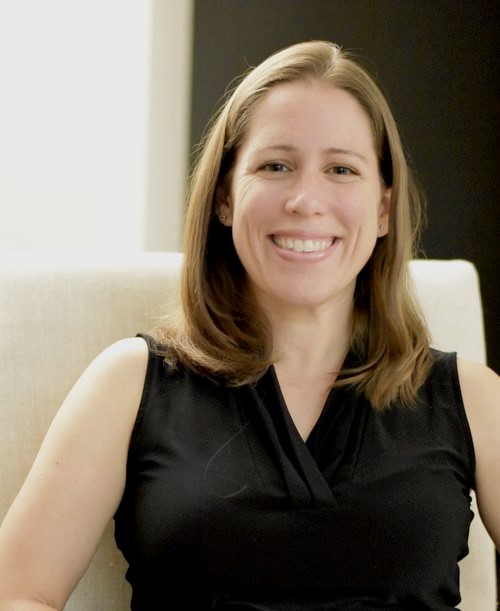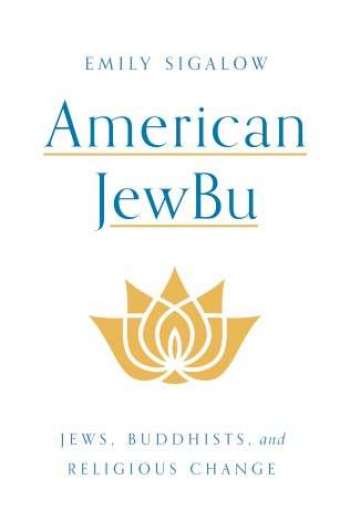
In American JewBu: Jews, Buddhists, and Religious Change, which was published at the end of 2019, sociologist Emily Sigalow explores the reasons why the proportion of Jewish Americans in Buddhist circles is notably higher than their share of the population in the United States. As she investigated the intersection between Judaism and Buddhism, she found that the two religious traditions have a relationship that goes back 130 years.
Emily Sigalow is the executive director of the Impact and Performance Assessment Department of the United Jewish Appeal-Federation of New York. The project that eventually culminated in her book American JewBu began while Sigalow was a grad student at Brandeis University, and was inspired by her doctoral adviser Wendy Cadge’s findings that almost 30 per cent of practitioners at Cambridge Insight Meditation were Jewish.
“I think the inspiration for the book was the seemingly disproportionate number of Jews I saw practicing Buddhism in the Boston area. I wanted to know what drew them to Buddhism and why they found a home there,” Sigalow said in an interview with Buddhistdoor Global.
“It was a bit of a conundrum,” Sigalow told The Times of Israel. “[Wendy Cadge] went to the center ostensibly to interview Buddhist practitioners, and instead ended up interviewing a lot of Jews. It was something constantly talked about in Buddhist circles. It seemed, even if there was no data to support it, there was a disproportionate number of Jews meditating in [Buddhist] centers. Nobody understood why or how it came to be.” (The Times of Israel)
In 2009, Sigalow set about researching the social and historical factors that explained how these two traditions came together and gave way to a multi-religious identity. She also looked at how this identity is expressed in people’s daily lives, and how it has impacted institutions and informed new practices. Her investigation was comprised of archival research, as well as ethnographic research in Buddhist meditations centers and in-depth interviews with practitioners across the nation.
Sigalow toldThe Times of Israel, “I assumed the Jewish-Buddhist encounter was a contemporary phenomenon—or at least it began in the counterculture movement of the ‘60s or ‘70s. When I began to actually look deeper, it was actually a really interesting story of the two traditions that really began in the late 19th century. Jews were very interested in Buddhism, some of the leading fountainheads of Buddhism in the US at that time.” (The Times of Israel)

According to Sigalow, during the latter period of the 19th century, many Buddhist teachers from Asia traveled to the US to spread the Dharma, giving Americans the opportunity to attend lectures about Buddhism. Books were also written on the topic of Buddhism, and Sigalow discovered that upper-middle class Jewish Americans were well placed to access these teachings. In fact, Jewish American Charles Strauss was the first person to be initiated into Buddhism on US soil in 1893. Sigalow argues that Jewish Americans have since played a significant role not only in bringing awareness to Buddhism, but also in shaping Buddhism in the US. She writes:
The central contribution of this book is to demonstrate that minority religious traditions in the United States also reconfigure themselves by borrowing and integrating elements from each other through a process shaped by their specific social locations in society. They do not just adapt to the [Protestant] majority, I show, but also to each other. (Sigalow 2019, 8–9)
Among some of the famous Jewish Buddhists are entertainers such as Goldie Hawn, Leonard Cohen, and Steven Seagal, as well as prominent teachers and authors such as Pema Chodron (born Deidre Bloomfield-Brown), Sharon Salzberg, Jack Kornfield, and the late Ram Dass (born Richard Alpert).
Asked about the reception of the book and future plans, Sigalow told Buddhistdoor Global: “The book has been well received so far (fingers crossed it remains that way!). I don’t have clear plans for the future right now apart from trying to weather the current health crisis safely.”
References
Sigalow, Emily. 2019. American JewBu: Jews, Buddhists, and Religious Change. Princeton: Princeton University Press.
See more
Studying US Buddhist centers, researcher finds 130-year history of fellow Jews (Times of Israel)
American JewBu: Jews, Buddhists, and Religious Change (emilysigalow)
What is an American JewBu? (The Jerusalem Post)













